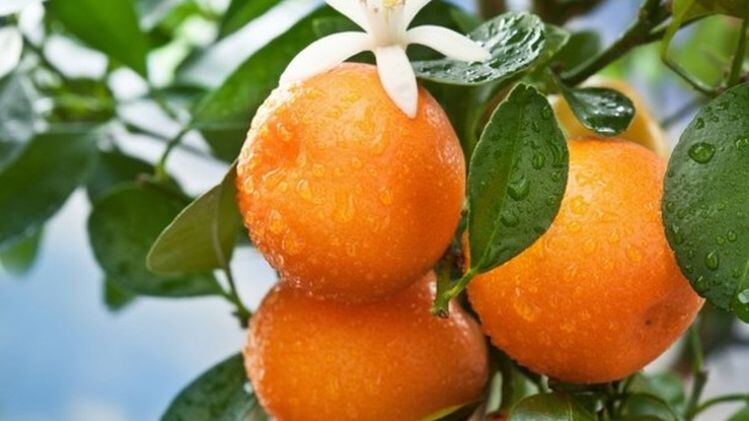Fiberstar’s Citri-Fi Non GMO Project verified citrus fibers are sourced from byproducts of the juicing industry, and can be labeled as citrus fiber, dried citrus pulp, or citrus flour, Brock Lundberg, PhD, division president, R&D, at Fiberstar, told FoodNavigator-USA.
“Much of the food industry automatically assumes that citrus fiber is used for its dietary fiber fortification benefits and not for functionality. However, the reality is that many citrus fibers are used at low levels (<1%) for their functional benefits.”
Citrus fiber in plant-based dairy beverages
Citri-Fi – which contains soluble and insoluble fiber and is made via a "physical patented process" - has water holding, emulsification and gelling capabilities, and is attracting growing interest from formulators of plant-based beverages looking to improve taste and texture and replace ‘chemical sounding’ ingredients, claimed Dr Lundberg.
“We’re receiving numerous requests internationally and in the US.”
Typically, such beverages need stabilizers and thickeners to maintain their appearance, mouthfeel and texture over time, he said, noting that Citri-Fi can help products maintain their suspension to reduce settling and improve creaminess.
“Ingredients that can be replaced include carrageenan, gellan gum, mono diglycerides, and lecithin [which some manufacturers want to remove from ingredients lists]. Typical usage rates are low (<0.5%). Because of the low usage level and the ability to replace multiple ingredients, there is also a large cost savings opportunity.”
Citrus fiber in plant-based meats
Another big growth opportunity for Citri-Fi is in plant-based meat, where it can be used in combination with ingredients such as agar, native starch, and psyllium to replace methyl cellulose, which is used in high profile products from the Impossible Burger to the Beyond Burger as a binder.
While it’s not on retailer’s ‘unacceptable ingredients’ list, methyl cellulose is not something consumers recognize on food labels, and can contribute to the narrative that plant-based meat is 'highly processed,’ said Dr Lundberg.
“We have had significant amount of interest in meat alternative ingredient solutions over the past six months. Some customers are looking to replace specific ingredients such as methyl cellulose to clean up their label declarations, and some are looking to improve the meaty bite and/or improve the juicy texture.
“Naturally, Citri-Fi is a good fit for plant-based meats considering its sourced from plants, i.e. citrus fruits, and has multiple functional properties. When used in a plant-based meat, Citri-Fi can be used to bind oils and reduce saturated fats and improve juiciness resulting in a nutritional and sensory improvement.
“Saturated fats are reduced when Citri-Fi is used together with liquid oils, which is stabilized and bound by the hydrophobic components of this natural fiber to solidify the oil so they function more like solid fats.
He added: “Another need in plant-based foods is texture and bite properties that do not change over time nor with heating. Part of the reason methyl cellulose is needed in plant-based meats is to provide thermal gelling; however with Citri-Fi, texture can be added that does not breakdown over time nor with heating (or cooling).”
To further enhance bite and texture in plant-based meat, Fiberstar is now working with a new product called Texturized Citri-Fi, he revealed. “This has a much larger particle size version versus standard Citri-Fi, and is used between 0.5-2%.”
Asked whether the fact that Texturized Citri-Fi is not a 1:1 replacement for methyl cellulose mattered (it is typically used in conjunction with other natural ingredients such as agar, native starch, and psyllium), he said: “Replacement solutions now only require 2-3 ingredients for full replacement.”
Drinkable yogurts
Other application areas where Fiberstar is seeing growth opportunities for Citri-Fi include drinkable yogurts, where it can replace hydrocolloids used as thickeners and emulsifiers, and deliver enhanced creaminess, he added.
“Citri-Fi is not vulnerable to breakdown over time which helps to improve overall quality of drinkable yogurts over their shelf-life.” Similarly, as Citri-Fi contains insoluble and soluble fiber with high amounts of native pectin, it can also replace pectin in drinkable yogurts, he said.
Fruit preparations
In fruit preparations, Citri-Fi can replace modified food starch and pectin, delivering gelling, thickening, and/or heat stability, while delivering “a more natural texture that does not change over time,” claimed Dr Lundberg.
“Citri-Fi’s gelling and thickening properties in fruit preparations reflect a patented process that increases the surface area of the fiber structure. The high surface area lends itself to high water holding capacity. Also, this is due to Citri-Fi’s native pectin content that gels under similar conditions as a high methoxy pectin.
“Another unique advantage of Citri-Fi is the multiple particle sizes. This natural fiber is offered in small particles which are ideal to make smooth textures. But it is also available in larger particle size that simulate natural fruit texture.”
Citri-Fi can replace clouding agents such as titanium dioxide in beverages by binding tightly to oils and making the beverage less transparent.
Citri-Fi – which binds to water and fats - is most commonly used in meat products as a texturizer and binder to maintain yields and prevent products drying out through heating and holding processes. It can also be used in conjunction with native starches or carrageenan to replace phosphates in poultry products.
It can also help firms cut costs by serving as a partial egg replacer owing to its natural emulsification properties.

